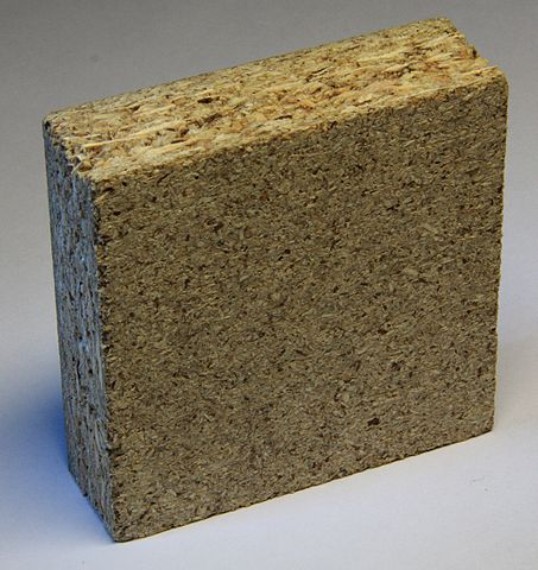- Elektromagnetic Fields
- Indoor workplaces
- Practical Solutions: Ergonomics
- Practical solutions: Hazardous substances
- Practical solutions: Noise
- Practical solutions: Machine safety
- Practical solutions: Personal Protective Equipment
Formaldehyde

Chipboard
Source: D-Kuru, Wikimedia Commons
Formaldehyde is a basic chemical that serves as an inexpensive precursor for a variety of chemical products. For instance, it is used in the production of phenol formaldehyde resins and aminoplasts, which in turn are used, for example, to glue chipboard, plywood and edge-glued panels.
Other formaldehyde sources of relevance in indoor spaces include in situ foams made from urea formaldehyde resin, varnishes (mainly acid-catalysed coatings for wooden floors and furniture), veneers, textiles, carpets and fibre mats containing binders. Aqueous solutions used as disinfectants and preservatives also contain formaldehyde and it can also be detected in personal care and cleaning products.
The German Committee on Indoor Guide Values set a guide value I (precautionary value) for formaldehyde of 0.1 mg/m3 in 2016. This concentration should not be exceeded, even briefly (reference measurement period: half an hour).
For download

Contact
Hazardous substances: handling, protective measures
Tel: +49 30 13001-3320Fax: +49 30 13001-38001
